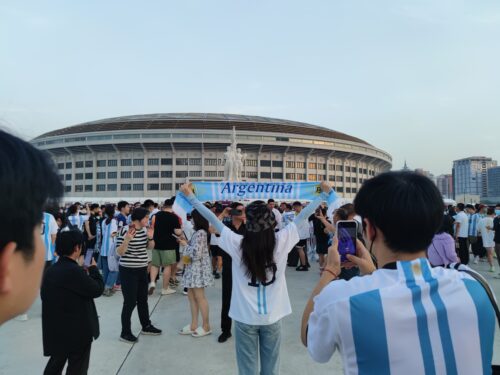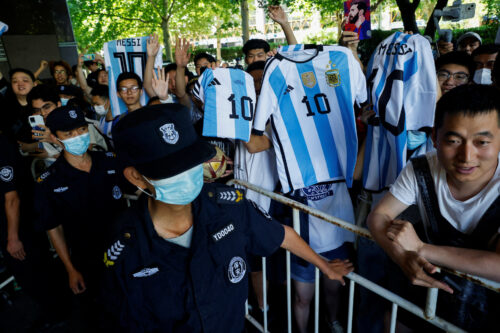Chinese companies are saving FIFA — but will it help China land a World Cup bid?
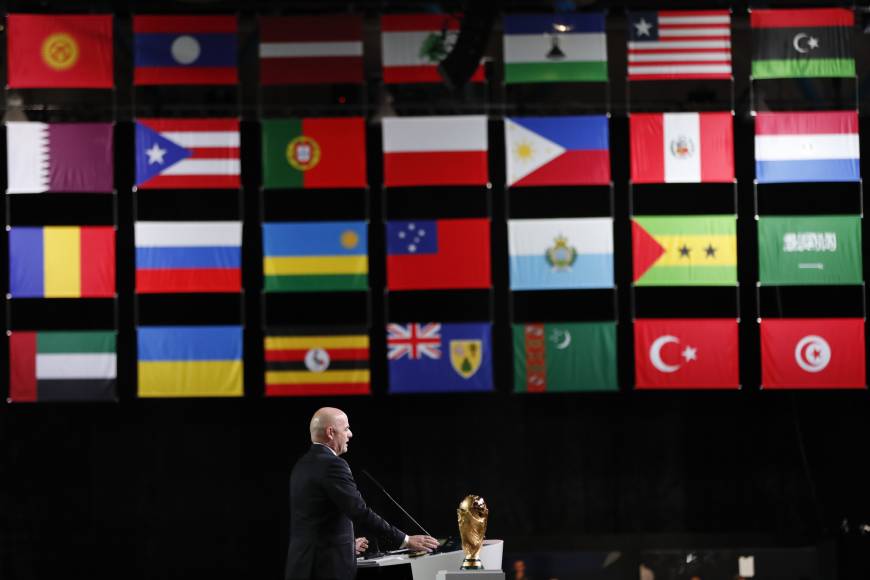
The China Sports Column is a The China Project weekly feature in which China Sports Insider Mark Dreyer looks at the week that was in the China sports world.
No, China’s not in the World Cup, though yes, there are an awful lot of Chinese sponsors this year.
The World Cup kicked off last night from Russia, with the home side scoring a resounding 5-0 victory over Saudi Arabia. You probably know that. But here are some soccer tidbits you may have missed…

The “United” bid representing the United States and their two couldn’t-be-less-united neighbors, Canada and Mexico, won the right to host the 2026 FIFA World Cup this week, beating out Morocco by a comfortable 134-65 margin.
However, a number of global soccer powers have been left disappointed. Brazil, France, Italy, and the Netherlands were among those nations to side with the Moroccans, while Kim Jong-un showed he’s yet to be won over by Trump, as North Korea also voted against the Americans.
Interestingly, so did China.
In past years, World Cup locations were decided by a closed vote among a select group of senior FIFA executives, but this system has been overhauled in favor of a one nation, one vote format, with full transparency ensured after FIFA published the breakdown of the vote — to the surprise of some.
After agreeing to vote for N. America to host the 2026 World Cup, Brazil’s football head actually picked Morocco, thinking he could get away with it because he believed the vote was private. It wasn’t. https://t.co/a9v2DOw5PN
— tariq panja (@tariqpanja) June 13, 2018
Typically, blocs large and small vote en masse, though 11 African nations controversially ignored the mandate to back continental nominee Morocco. In that vein, Macau and Taiwan — or Chinese Taipei, as it’s known in the sporting world — followed Beijing’s lead in voting for Morocco.
But there might have been a few red faces the following day when it was revealed Hong Kong voted instead for the United bid. Hong Kong and China have had more than a few soccer-related scraps over the past few years, with two 0-0 ties in World Cup qualifying games nearly destroying China’s hopes of progress. Meanwhile, rules were brought in designed in part to stop Hong Kong fans from booing the Chinese national anthem prior to games.
But despite the tension, you still have to imagine that Hong Kong, Macau, and Taiwan would all back a future Chinese World Cup bid — but they may not get the chance. With Guam, Puerto Rico, and the U.S. Virgin Islands all denied a vote this time around because of their close links to the U.S., a precedent has been set to prevent the Greater China nations from having a say when the PRC, sometime in the indeterminate future, seeks to host the tournament.
Presumably, though, China can still count on North Korea’s vote when the time comes.
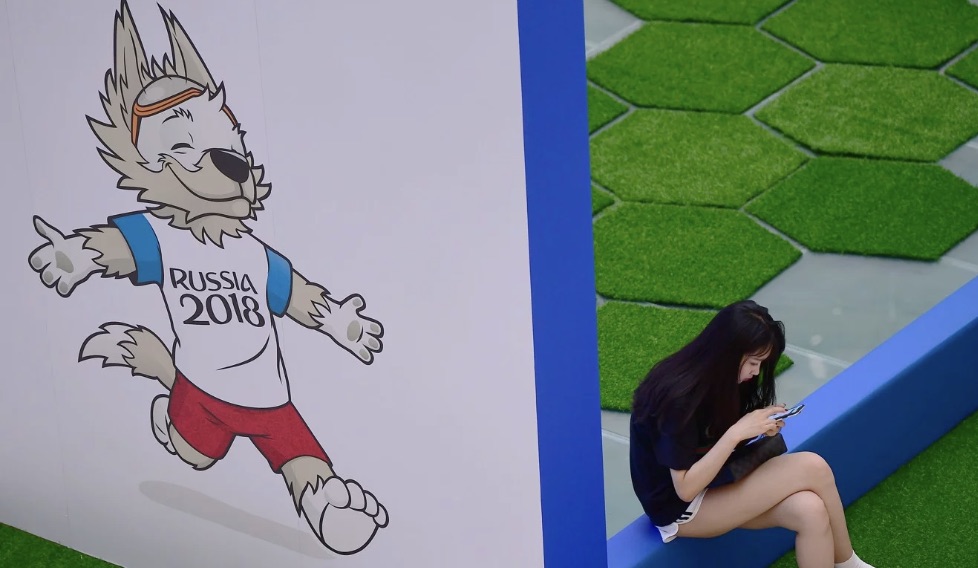
In other World Cup news, Chinese sponsors have spared FIFA’s blushes — with dairy giant Mengniu a particularly interesting example — but don’t go thinking that today’s sponsorship dollars will automatically convert into a World Cup years from now.
Elsewhere in the football world, Chinese international Wang Shenchao 王燊超 has been banned for 12 months for daring to wear a necklace on the pitch in a recent game against Myanmar. Wang was caught on camera taking a necklace out of his sock and putting it around his neck shortly after coming on as a substitute, with the CFA banning him for a year — including next year’s Asian Cup — while club side Shanghai SIPG also fined him 20,000 RMB ($3,100). It’s against the rules to wear jewelry of any sort on the field, and from that perspective Wang only has himself to blame, but the severity of the punishment has raised eyebrows even in the notoriously unpredictable world of Chinese football discipline.
Tattoo ban latest humiliation for China’s beleaguered soccer team
One player who would probably be glad for a mere 12-month sentence is 19-year-old Jiangsu Suning striker Ye Erfan 叶尔凡, who appears to have been detained without charge earlier this year after a couple of overseas training trips. The ethnic Uyghur, who also goes by the name Erfan Hezim, was reportedly taken to a political re-education camp in February after coming back from training camps in Dubai and Spain. World Players’ Union FIFPro has called for his immediate release “so that he can be reunited with his family and continue his football career.” His picture remains on Jiangsu’s official website, but he hasn’t been seen at all this season.
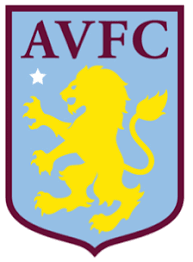
The Aston Villa story has continued to rumble on from last week, with the suspended Keith Wyness now officially sacked as CEO and suing the struggling Chinese-owned club for constructive dismissal. Meanwhile, the club is due for talks next week with the English Football League over its catastrophic financial situation. The enigmatic Tony Xia is reportedly looking to sell part of the club for £30 million ($40 million) in order to ease the club’s debt pressures, with more payments coming due this month — though if a new investor can be found there would likely be significant disagreement as to exactly how much of the club £30 million would buy.
The decline of Aston Villa under its enigmatic Chinese owner
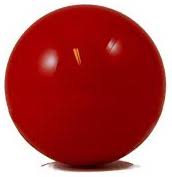
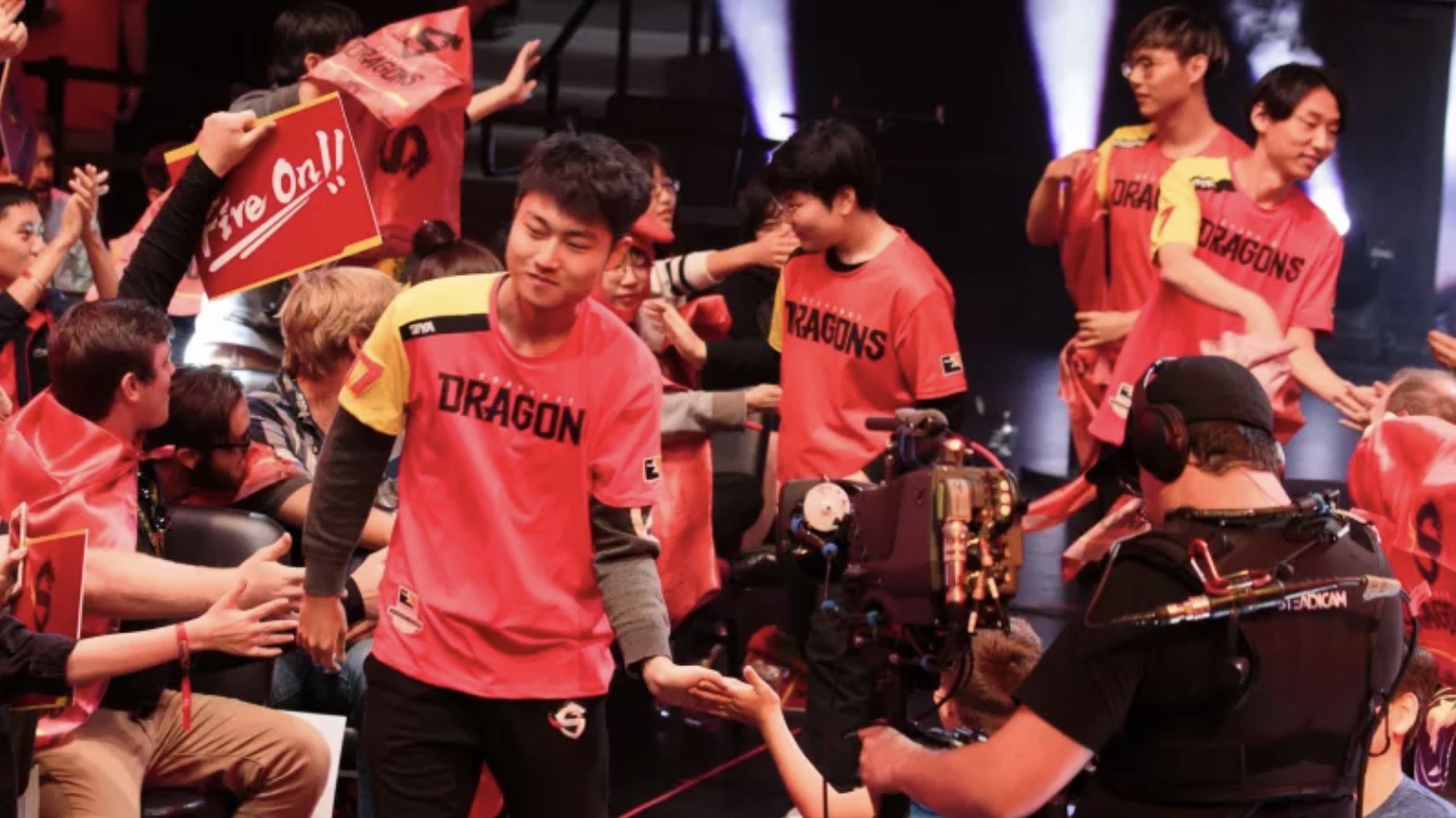
Two areas where China might expect to see some growth over the next year are in the very different fields of motor racing and snooker. The increasingly popular — and all-electric — Formula E series has announced a second race for China for its fifth season. Seasons 1 and 2 kicked off in Beijing, while Seasons 3 and 4 began in Hong Kong, and though Hong Kong has been bumped further down the calendar for next year, it will be followed two weeks later by an additional Chinese race. The location is still to be decided, though it’s thought to be a toss-up between a return to the capital or a new race in Hainan.
Meanwhile, World Snooker has revealed the names of the 129 players who will compete on the world tour next season, and 24 of them are Chinese, second only to England’s 55. Leading the charge is world No. 6 Ding Junhui 丁俊晖, but many have been tipping 18-year-old Yan Bingtao 颜丙涛 to make a breakthrough sooner rather than later. At 23 in the world, Yan is the highest ranked teenager on the list, though he is still waiting for his first major title.
Finally, if you’re feeling low, this profile of the Shanghai Dragons is worth a look simply because you can’t do any worse than they’ve done lately. After 36 consecutive defeats, the Chinese esports team has been slammed by fans, with fears that they’ve been driven into the ground by their overzealous manager’s training routine. But with the team now being described as worse than the national soccer squad, they’ve truly hit rock bottom.
The China Sports Column runs every Friday on The China Project. Follow Mark Dreyer @DreyerChina




